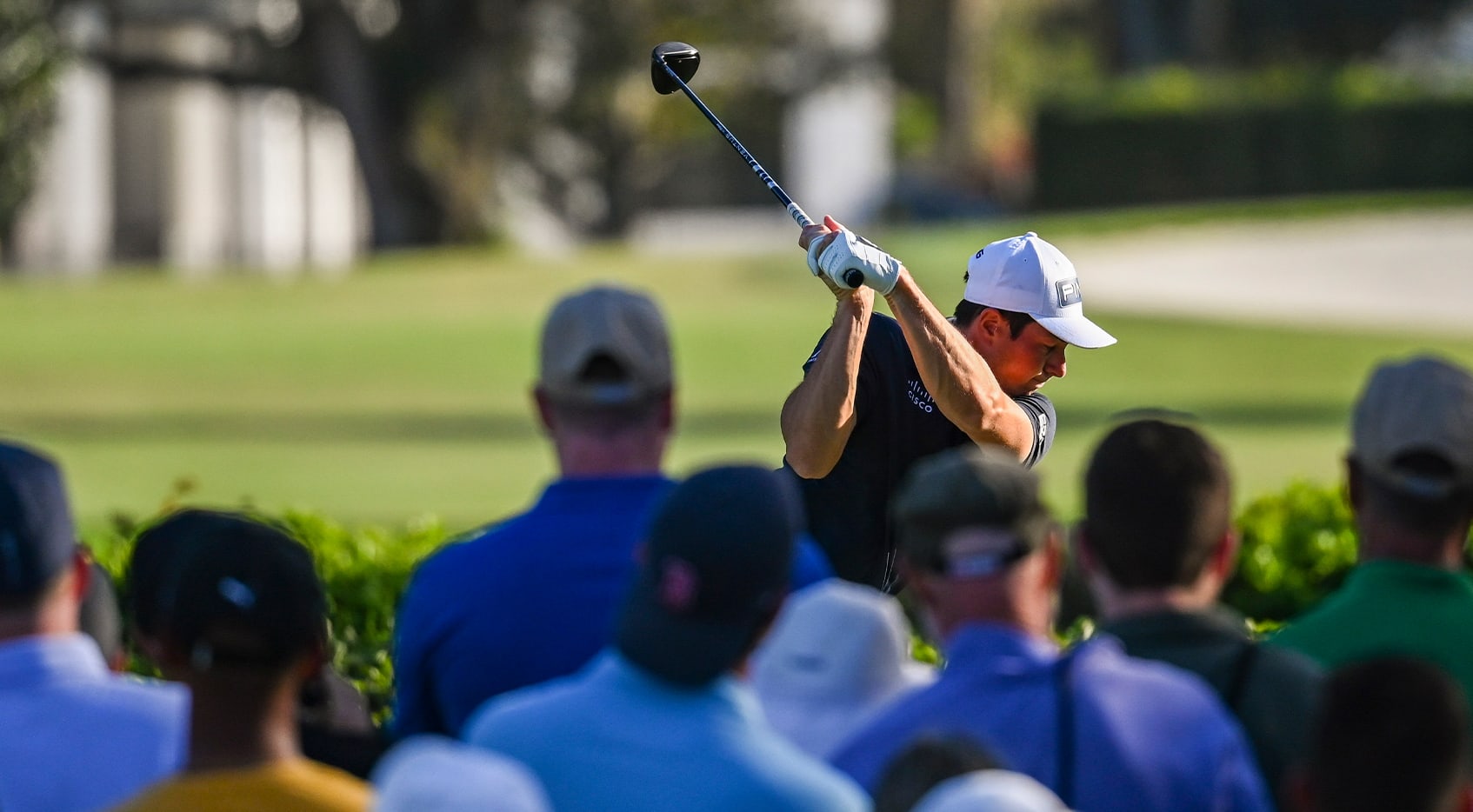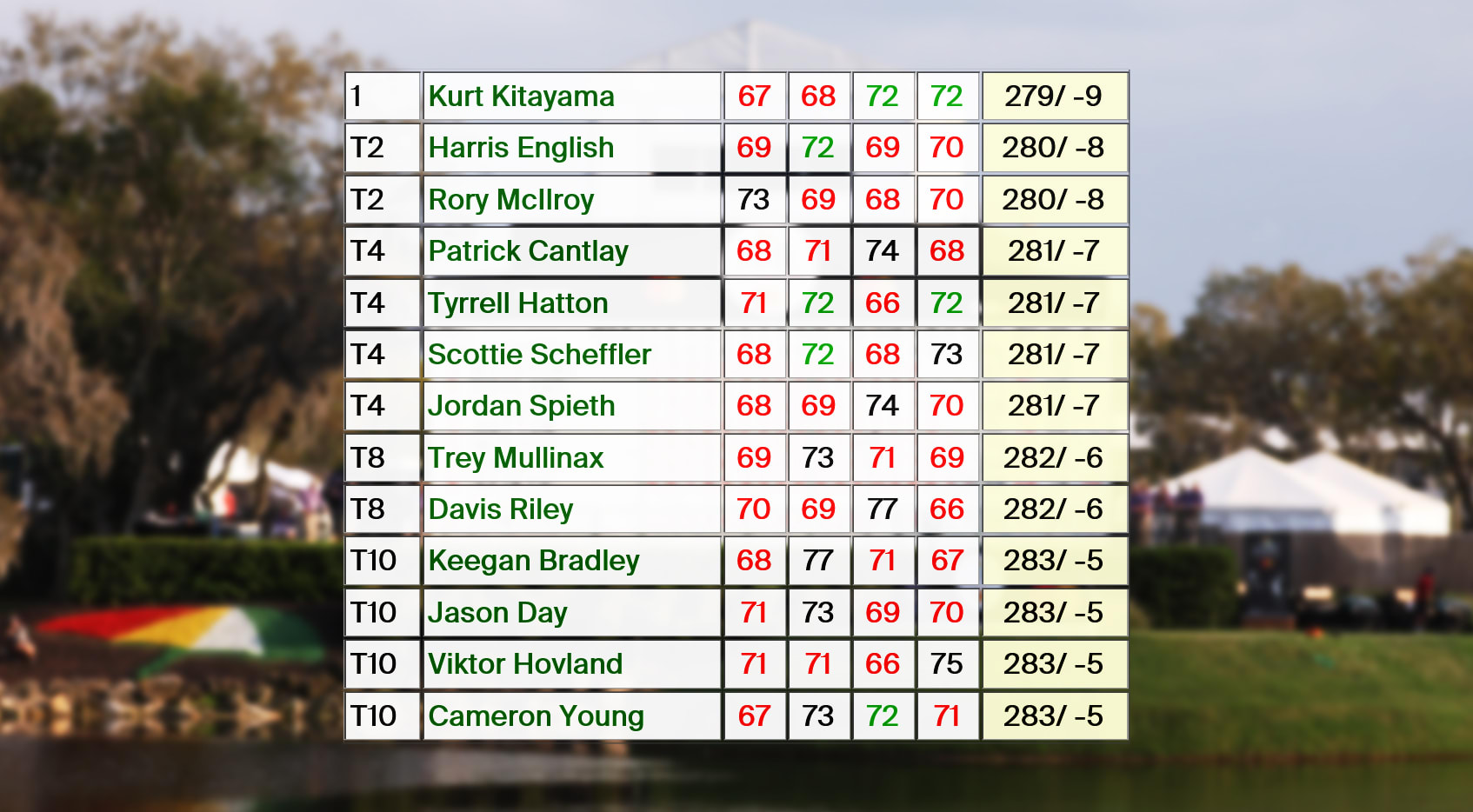Dead heat golf betting

What does it mean when dead heat golf betting selection is dead heated? When two or more selections are joint winners in an event, dead heat rules may be used to. Essentially, you divide your stake by the number of extra golfers. So your $ stake is divided by the 3 extra players who also finished tied. mtwarrenparkgolf.com.au › dead-heat-rule-applied-golf-bets. Dead Heat Rule applied to Golf Bets In Golf tournaments there is generally not a dead heat for the actual winner of a tournament, as extra holes are played.
Sports Betting News
In golf, the dead heat depends on the total number of players tied and the places on offer. What is the payout if your golf bet ends in a dead heat. Your stake is cut down based on the number of golfers tied. Some sportsbooks cut the odds, and it is possible to lose money on a dead-heat finish. Rory McIlroy can finish tied for sixth, and the total return will be cut down because of the number of participants that have tied.
The only time the finishing position must be settled with a winner is when two golfers tie for the tournament championship. The golfer you are backing ends up tied with another golfer. The same as golf, the number of ties is divided by the stake in horse racing betting. See the example below. But they can use the results in other ways, like the vig or vigorish, if you prefer.
The sportsbook collects the fee for handling your bet, and they get paid on win, lose, or dead heat. Line movement is another area where sportsbooks can gain an edge when the algorithm is triggered based on public money coming in, an injury, or, in the case of horse racing, a scratch. Frank and Geoff wrote this online sportsbook guide with one goal in mind: to pass on their first-hand sports betting knowledge to the masses.
The guide covers everything from signing-up at a sportsbook to cashing out when you win big, plus every single step in between. Terms and conditions affecting the bonus offers available to you vary by location. Please consult the sportsbook website directly to view the most up-to-date terms and conditions regarding the bonus offers outlined on this page.
Please consult the sportsbook website directly to view the most up-to-date terms and conditions regarding the bonus offers highlighted on this page. Terms and conditions impacting the bonus offers available to you vary by location. Find answers to common questions bettors like you have when researching which sportsbook to join.
Dead heat bet refers to a situation in which two or more participants finish a sporting event or a race exactly at the same time, making it impossible to determine the winner. Dead heat golf betting In such a case, the bookmaker declares a tie or a dead heat. In a dead heat bet, the stake is divided by the number of winners, and the payout depends on the odds of the winner at the time of placing the bet.
Dead heat bets are common in horse racing, athletics, and other events with multiple participants. It is essential to understand dead heat rules before placing a bet to avoid any confusion or disappointment. A dead heat is a term used in sports or horse racing when two or more participants finish a race with the exact same time or score, making it impossible to determine a clear winner.
In such cases, the participants who finish in a dead heat are usually awarded an equal share of the prize or the win is split between them. For example, in horse racing, if two horses cross the finish line at the same time, they will be considered as having finished in a dead heat, and the betting payouts will be split evenly among those who placed bets on either horse to win.
In other cases, a tiebreaker round or a coin flip may be used to determine a winner in the event of a dead heat. In horse racing, a dead heat occurs when two or more horses finish a race at the exact same time. In this situation, the payouts for the winning bets are divided evenly among the horses who finished in a tie. So if you bet on a horse that finished in a dead heat, you would not receive the full payout for a winning bet, but rather a portion of that payout based on the number of horses involved in the dead heat.
Yes, it is possible to lose money on dead heat reduction if you do not properly understand the rules and potential outcomes. When a dead heat occurs in a race, it means that two or more horses have finished the race at the same time and cannot be separated by the judges.
In this case, the original odds of each horse are divided by the number of horses involved in the dead heat and the payout is reduced accordingly. If you have placed a bet on one of the horses involved in the dead heat, your potential payout will be less than if there was no dead heat.  However, if you have placed a bet on a different horse that was not involved in the dead heat, you may lose money if the reduction results in a smaller overall payout for your bet.
However, if you have placed a bet on a different horse that was not involved in the dead heat, you may lose money if the reduction results in a smaller overall payout for your bet.
To avoid losing money on dead heat reduction, it is important to understand the rules and potential outcomes before placing your bets. You should also consider using strategies such as hedging your bets or spreading risk across multiple horses to minimize potential losses. If there is a dead heat in a race or competition, it means that two or more participants finish at the same time.
However, if you have placed a bet on a different horse that was not involved in the dead heat, you may lose money if the reduction results in a smaller overall payout for your bet. To avoid losing money on dead heat reduction, it is important to understand the rules and potential outcomes before placing your bets.
You should also consider using strategies such as hedging your bets or spreading risk across multiple horses to minimize potential losses. If there is a dead heat in a race or competition, it means that two or more participants finish at the same time. In these situations, the prize money is usually divided equally among the participants who tied.
The division of the prize money between the tied participants is usually determined by the rules of the competition or by agreement among the participants themselves. The frequency of dead bets depends on the specific betting context, but they can be relatively common in some situations. For example, in sports betting, a bet on a team that is heavily favored to lose may be considered a dead bet.
Similarly, in horse racing, a bet on a horse with very long odds of winning may be seen as a dead bet. However, experienced bettors typically try to avoid dead bets by carefully analyzing the available information and making informed decisions. Ultimately, whether dead bets are common or not depends on the skill and knowledge of the bettor, as well as the particular betting market.
A Dead Heat Result is when two or more participants in a race or competition finish with an equal score or time. This can occur in many sports, including horse racing, athletics, and even in academic competitions like quizzes. In the event of a Dead Heat Result, the prize money or rewards are usually split equally among the participants who finished with the same result.
Dead heat rules are applied in sports or racing betting situations when two or more competitors finish in a tie. In these cases, bets are settled differently to account for the tie. Essentially, the money that would have been paid out to the winning bettor is split between the tied competitors. The exact rules and calculations for dead heats vary depending on the specific sport or betting market.
A dead heat bet is a type of bet in which two or more competitors finish a race or event in a tie. Dead heat bets are common in horse racing, and they can also occur in other sports such as swimming, track and field, and winter sports like skiing or speed skating. When a dead heat occurs, the bet is typically settled by dividing the stake evenly between the tied competitors and paying out accordingly.
My Top Sportsbooks reviews and recommends sportsbooks independently. We might earn a comission if you sign up to a sportsbook using our links. Read more. How to bet. Dead Heat Rules Explained. What does Dead Heat mean in Sports Betting. Read Review.
Bet Now. Why the Term Dead Heat. Dead heat rules take into consideration two things: the stake and the odds. Dead heats are Common to Which Sports. What are the Golf Dead Heat Rules. Golf betting games for 6 players Bovada Review Terms and conditions affecting the bonus offers available to you vary by location. BetUS Review Terms and conditions affecting the bonus offers available to you vary by location. MyBookie Review Terms and conditions affecting the bonus offers available to you vary by location.
BetOnline Review Terms and conditions impacting the bonus offers available to you vary by location. XBet Review Terms and conditions affecting the bonus offers available to you vary by location. Everygame Review Terms and conditions affecting the bonus offers available to you vary by location. The second part of the place bet will win, but as more than one player is in 5 th position, this means that Dead Heat Rules will apply.
When you are betting on the outright winner market, for the majority of tournaments if there is a tie for first place then they will hold a playoff. The winner of this market is then settled by the winner of the playoff. But, in rare circumstances, there might be no playoff, which means that Dead Heat rules will apply.
Also, dead heat rules, as mentioned above, will apply to this betting market. Quite often in golf you will find that players may withdraw over the course of the week — usually down to injury. If this happens, then your bet will stand providing that they have played 3 or more holes of the tournament. Rule 4 is applicable in golf. The most common circumstance for this to happen is when favourites for the event have withdrawn and bets have already been taken.
If Rule 4 does apply to an event then your bets will still stand, but the odds of the player that you initially took will likely be reduced.
Popular Pages
- Betfair golf betting strategy
- How to bet on golf
- Golf futures
- Paddypower golf betting
- Memorial golf tournament 2023 leaderboard
- Golf betting app ios
- Qld open golf betting
- Betting pga golf this week
- Michael douglas golf bet
- Charles schwab challenge leaderboard 2022
- Irish open golf betting 2018
- Golf betting games umbrella
- Honda leaderboard
- Uspga scores
- Betting odds players championship